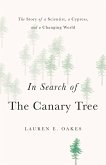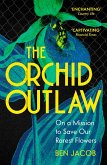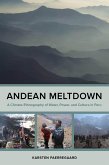'[Jason Allen-Paisant] intimately explores ideas around class, leisure, economics and self-discovery, looking closely at the life of his farmer grandmother, as well as the plants and people that shaped who he is today' Observer
'Strangely restorative and tenderly written. Hold it in your hands and then dream of the green world' Monique Roffey, author of Passiontide
'This book is a triumph' Professor Corinne Fowler, author of Our Island Stories
'An unforgettable read' Tice Cin, author of Keeping The House
'Profound and lyrical' Ekow Eshun, author of The Strangers
The Possibility of Tenderness is a personal history narrated through the lens of the 'grung' and plants. It's also a people's history of the land, a family saga, an archival detective story through time. It's the migration tale of a young scholar who arrives in Britain from rural Jamaica to study at Oxford to achieve 'upward social mobility' and who now lives in Roundhay Leeds. Suddenly, amidst his journey of dreams and class aspiration, the plants and people of his native district, Coffee Grove, begin to offer different ways of living, alternative dreams, and the possibility of tenderness and the permission to roam England.
Marrying the local and the familial with global history and unfolding as a timely and immersive tale of land, environment, and the world of plants, The Possibility of Tenderness reveals how the history of a tiny rural village in a mountainous region of Jamaica is interlinked with that of modern Britain. And, also what that rural village can teach us about leisure, land ownership and reclamation today.
Mama, the author's grandmother, is a central protagonist of the story. Alongside her, herbalists, plant workers, farmers, and plant lovers help forge an intimate portrait of Coffee Grove, as do the plants themselves; fever grass, jointa, search mi heart, leaf of life, helping Allen-Paisant revise his sense of self and solidify a new understanding of his place in the world.
The Possibility of Tenderness is a cross-pollinating book about the transformative power of plants, the legacy of dreams, and the lessons they offer for living with the earth.
Dieser Download kann aus rechtlichen Gründen nur mit Rechnungsadresse in A, B, BG, CY, CZ, D, DK, EW, E, FIN, F, GR, HR, H, IRL, I, LT, L, LR, M, NL, PL, P, R, S, SLO, SK ausgeliefert werden.









